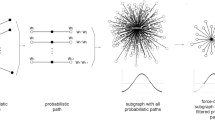Abstract
Recently, drug recommendation tasks have been widely accepted in intelligent healthcare. Most of the existing methods utilize patients’ electronic health records (EHRs) to achieve medical prediction. However, existing algorithms neglect the description of the patient’s health status, which makes it difficult to adapt to the dynamic patients’ condition. And they ignore the intrinsic encoding of drug molecular structure, resulting in the weak performance of drug recommendation. To fill the gap, we propose a molecular graph encoder for drug recommendation named MGEDR to capture the genuine health status of patients. Furthermore, We encode the drug molecular graph and functional groups separately to obtain subtle drug representation. And we design the degree encoder and functional groups encoder to seize the intrinsic features of the molecule efficaciously. Our experimental results show that our proposed MGEDR framework performs significantly better than state-of-the-art baseline methods.
Access this chapter
Tax calculation will be finalised at checkout
Purchases are for personal use only
Similar content being viewed by others
References
Choi, E., Bahadori, M.T., Sun, J., Kulas, J., Schuetz, A., Stewart, W.: Retain: an interpretable predictive model for healthcare using reverse time attention mechanism. In: Advances in Neural Information Processing Systems, vol. 29 (2016)
Degen, J., Wegscheid-Gerlach, C., Zaliani, A., Rarey, M.: On the art of compiling and using’drug-like’chemical fragment spaces. ChemMedChem Chem. Enabling Drug Dis. 3(10), 1503–1507 (2008)
Garets, D., Davis, M.: Electronic medical records vs. electronic health records: yes, there is a difference. Policy white paper. Chicago, HIMSS Analytics pp. 1–14 (2006)
He, X., Folkman, L., Borgwardt, K.: Kernelized rank learning for personalized drug recommendation. Bioinformatics 34(16), 2808–2816 (2018)
Huang, K., Fu, T., Glass, L.M., Zitnik, M., Xiao, C., Sun, J.: Deeppurpose: a deep learning library for drug-target interaction prediction. Bioinformatics 36(22–23), 5545–5547 (2020)
Jing, B., Xiang, Y., Chen, X., Chen, Y., Tong, H.: Graph-mvp: multi-view prototypical contrastive learning for multiplex graphs. arXiv preprint arXiv:2109.03560 (2021)
Johnson, A.E., et al.: Mimic-iii, a freely accessible critical care database. Sci. Data 3(1), 1–9 (2016)
Le, H., Tran, T., Venkatesh, S.: Dual memory neural computer for asynchronous two-view sequential learning. In: Proceedings of the 24th ACM SIGKDD International Conference on Knowledge Discovery & Data Mining, pp. 1637–1645 (2018)
Liu, H., Lin, H., Shen, C., Yang, Z., Wang, J., Yang, L.: Self-supervised learning with heterogeneous graph neural network for covid-19 drug recommendation. In: 2021 IEEE International Conference on Bioinformatics and Biomedicine (BIBM), pp. 1412–1417. IEEE (2021)
Read, J., Pfahringer, B., Holmes, G., Frank, E.: Classifier chains for multi-label classification. Mach. Learn. 85(3), 333–359 (2011)
Shang, J., Xiao, C., Ma, T., Li, H., Sun, J.: Gamenet: graph augmented memory networks for recommending medication combination. In: Proceedings of the AAAI Conference on Artificial Intelligence, vol. 33, pp. 1126–1133 (2019)
Yang, C., Xiao, C., Ma, F., Glass, L., Sun, J.: Safedrug: dual molecular graph encoders for safe drug recommendations. arXiv preprint arXiv:2105.02711 (2021)
Zhang, Y., Zhang, D., Hassan, M.M., Alamri, A., Peng, L.: Cadre: Cloud-assisted drug recommendation service for online pharmacies. Mobile Netw. Appli. 20(3), 348–355 (2015)
Zhang, Y., Chen, R., Tang, J., Stewart, W.F., Sun, J.: Leap: learning to prescribe effective and safe treatment combinations for multimorbidity. In: Proceedings of the 23rd ACM SIGKDD International Conference on Knowledge Discovery and Data Mining, pp. 1315–1324 (2017)
Zhang, Z., Guan, J., Zhou, S.: Fragat: a fragment-oriented multi-scale graph attention model for molecular property prediction. Bioinformatics 37(18), 2981–2987 (2021)
Zheng, Z., et al.: Interaction-aware drug package recommendation via policy gradient. ACM Trans. Inf. Syst. (TOIS) (2022)
Acknowledgment
This work is supported by grant from the Natural Science Foundation of China (No. 62072070).
Author information
Authors and Affiliations
Corresponding author
Editor information
Editors and Affiliations
Rights and permissions
Copyright information
© 2022 Springer Nature Switzerland AG
About this paper
Cite this paper
Shi, K., Zhang, S., Liu, H., Zhang, Y., Lin, H. (2022). MGEDR: A Molecular Graph Encoder for Drug Recommendation. In: Lu, W., Huang, S., Hong, Y., Zhou, X. (eds) Natural Language Processing and Chinese Computing. NLPCC 2022. Lecture Notes in Computer Science(), vol 13552. Springer, Cham. https://doi.org/10.1007/978-3-031-17189-5_8
Download citation
DOI: https://doi.org/10.1007/978-3-031-17189-5_8
Published:
Publisher Name: Springer, Cham
Print ISBN: 978-3-031-17188-8
Online ISBN: 978-3-031-17189-5
eBook Packages: Computer ScienceComputer Science (R0)





